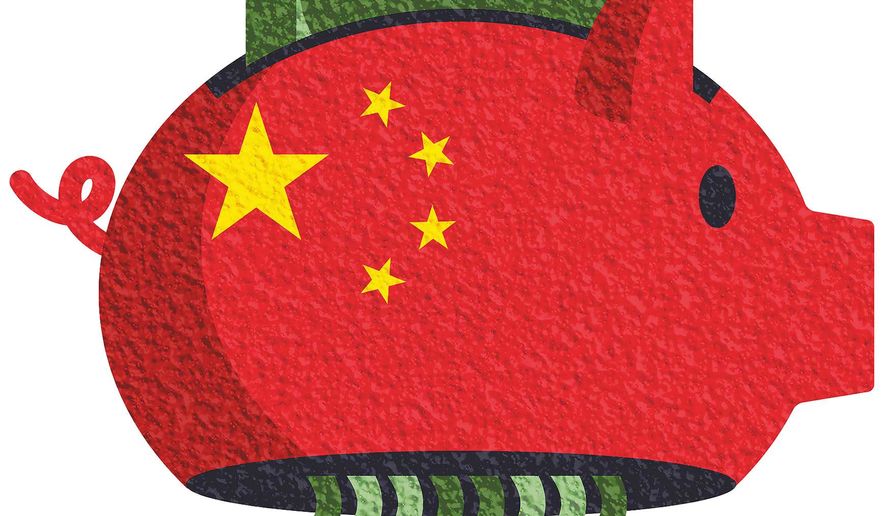OPINION:
One of the latest fads on the left is the “environmental, social and governance,” or ESG, movement, in which large companies and financial institutions promise to be environmentally sensitive, diverse, inclusive and whatever, while remaining focused on making money. In reality, ESG, especially on the investing side, seems more like window dressing and an exercise in mass hypocrisy than anything else.
Not surprisingly, those who stand to make money from the ESG ecosystem — ratings firms, corporate lawyers, audit firms, investment banks, asset managers, proxy advisers, index providers, etc. — want the federal government to create and mandate ESG standards for all companies.
While ESG advocates typically talk about the importance of climate and social issues, they ignore the reality below their rhetoric.
That ugly reality includes the fact that American financial institutions — most of whom have committed to the principles of the ESG craze — make the genocidal slaving regime of Communist China possible.
In direct contravention of their own promises concerning climate, they fund the building of new coal-fired power plants in Communist China. They help the communist regime in China dredge the South China Sea. They fund factories that use slaves. They finance human surveillance systems in slave camps.
How credible is Wall Street’s virtue signaling when it continues to send American investor money to a Chinese Communist Party committed to slavery, genocide and international aggression?
ESG also apparently fails on investing performance. Evidence indicates several ESG funds are really just overpriced index funds, that ESG strategies fail to generate increased returns for investors, and that some of the best-known ESG investments have woefully underperformed traditional investment funds.
ESG investing has produced below-average returns, forced boards to discuss political issues instead of core business considerations and has increased the practice of “greenwashing,” which occurs when ESG marketing gimmicks are used to sell investors expensive “green” or “socially responsible” funds that fail to live up to their label.
Undeterred by their failures in defending basic human rights or performing their day job of investing, ESG advocates want the Securities and Exchange Commission to create investing rules focused on political and social issues. The SEC’s mission is to protect investors who put their capital at risk, facilitate small business access to our capital markets and maintain market integrity, not mandate investments in politically favored industries or companies.
As SEC Commissioner Hester Peirce recently and correctly noted, “Congress has not granted authority to the SEC to address ESG issues for the purpose of promoting goals unrelated to the federal securities laws.”
Why should the federal government favor the political preferences of anyone on Wall Street — especially the ESG whiz children who have shown themselves to be without moral compass — over the personal preferences of millions of Main Street investors who are simply seeking a decent return on their investments to help fund retirement, a child’s college education or other savings?
There are blowhards in the United States (looking at you, Special Climate Envoy John Kerry) who are willing to turn a blind eye to the depredations of the communist regime in China. They blithely assert that climate change is an existential threat to the world, typically just before getting on their private jets and heading to one of their beach houses.
But the real existential threat for the United States is that the communist regime in China is set on ruling the world. In that effort, they are being helped (wittingly or otherwise) by compromised Americans in finance (like Ray Dalio and Larry Fink), in entertainment (think John Cena and LeBron James), and compromised American companies (Disney, Apple, Tesla).
The federal government should not help bad actors in the financial world exacerbate the existential threat we face by legitimizing ESG propaganda, damaging American investors and making the genocidal regime in China richer.
• Michael McKenna, a columnist for The Washington Times, is a co-host of “The Unregulated” podcast. He was most recently a deputy assistant to the president and deputy director of the Office of Legislative Affairs at the White House.




Please read our comment policy before commenting.